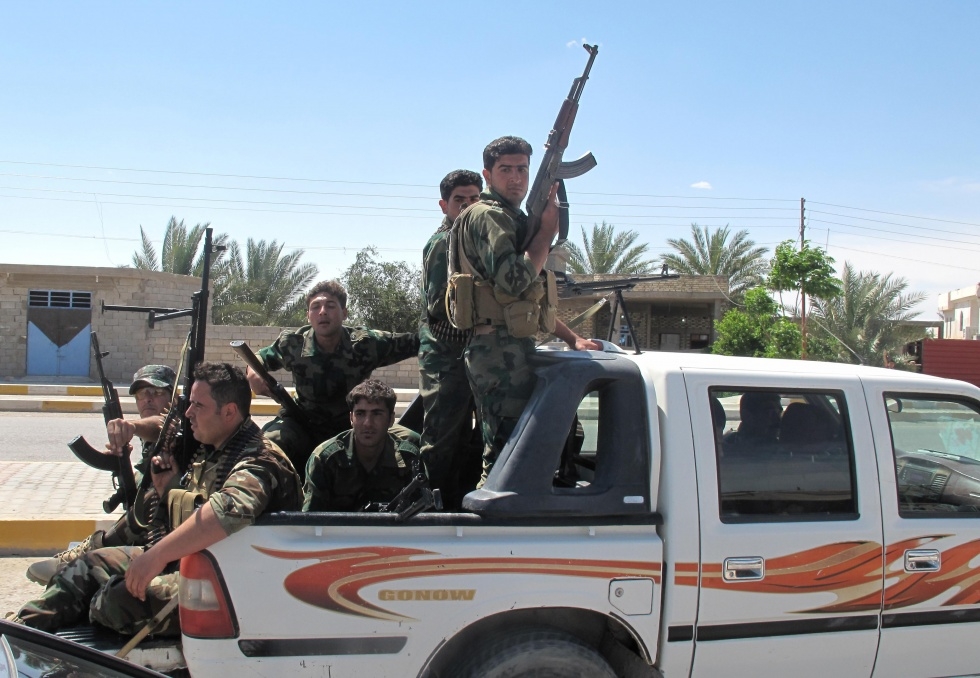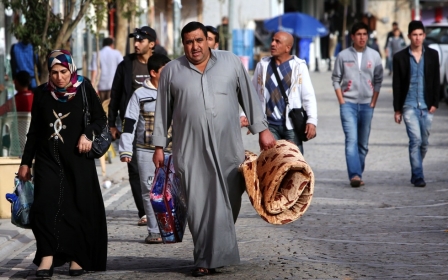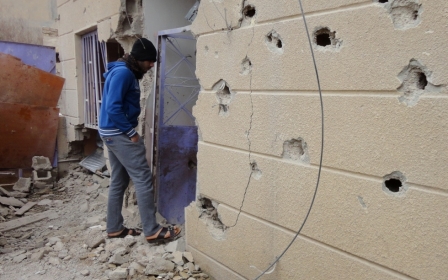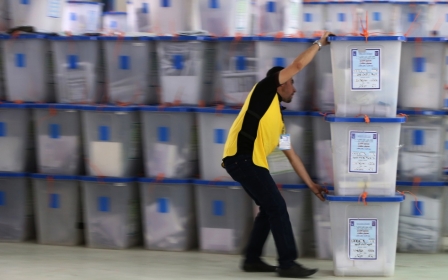Violence flares in Iraq's Samarra as militants attack army

Militants launched a major attack on the northern Iraqi city of Samarra on Thursday, killing six people and occupying neighbourhoods, in the latest display of their reach and the weakness of security forces.
The militants, travelling in dozens of vehicles, some mounted with anti-aircraft guns, attacked a major checkpoint on the southeast side of Samarra, killing the security forces guarding it and burning their vehicles, witnesses said.
They then took control of several areas of the city, north of Baghdad, according to witnesses, who reported seeing the bodies of both security forces and gunmen in the streets.
An AFP journalist saw helicopters firing into the city.
A police major and a doctor said six police had been killed and 24 people wounded in the fighting.
The police officer said security forces have withdrawn from other areas to defend a revered Shiite shrine in central Samarra, which was bombed in February 2006, sparking a brutal Sunni-Shiite sectarian conflict that killed tens of thousands.
The assault comes as a standoff between anti-government fighters and security forces in Iraq's Anbar province, west of Baghdad, enters its sixth month.
Aid to Fallujah, a first since January
The city of Fallujah, just a short drive from Baghdad, and some parts of provincial capital Ramadi, farther west, have been outside government control since early January.
On Thursday, the International Committee of the Red Cross said it had delivered medical supplies to Fallujah for the first time since January, describing conditions in the city as "extremely dire".
"The situation is very worrying," said Patricia Guiote, head of the Red Cross sub-delegation in Baghdad and the leader of the five-member team that delivered the supplies to Fallujah.
"People are enduring a severe shortage of food, water and health care. Services at the hospital, which is the only facility still able to provide treatment for the injured and the sick, have been seriously affected by the fighting."
The ICRC said the team delivering the supplies found "immense needs and a situation that is extremely dire."
"People in the city are living through a terrible ordeal."
Iraqi army shells Fallujah, killing 8 civilians
Meanwhile, eight civilians were killed and nine others injured on Thursday when the army shelled residential areas of Fallujah, a medical official has said.
"The victims' homes were struck by mortar shells," Wessam al-Essawi, spokesperson for Fallujah General Hospital, which received the dead and injured.
The Iraqi army, for its part, has yet to officially comment on the reported incident.
Upwards of 350 people, most of them civilians, have been killed in months of conflict in Fallujah, according to Doctor Ahmed Shami at the city's hospital.
Violence in Iraq is running at its highest levels since 2006-2007, the height of the country's Sunni-Shiite sectarian conflict.
More than 900 people were killed last month, according to figures separately compiled by the United Nations and the government.
And over 4,000 have been killed so far this year, according to AFP figures based on security and medical sources.
PM pledges to return displaced Iraqis to Anbar
Meanwhile, Iraq's Prime Minister Nouri al-Maliki on Wednesday pledged to return displaced Iraqis to their homes in the western Anbar province before the Muslim fasting month of Ramadan, which is set to start later this month.
In his weekly televised address, al-Maliki called on the Anbar residents to take the initiative to "uproot terrorism" so that displaced families can return to their homes.
Ramadan is the holiest month in Islamic calendar.
Anbar has been stricken by gory tension for several months now initially between Sunni residents complaining of marginalization and the government.
Al-Maliki, whose term came to an end a few weeks ago, said his government would rebuild districts in the Anbar province.
Officials blame external factors for the rise in bloodshed, particularly the civil war in neighbouring Syria, and insist wide-ranging operations against militants are having an impact.
But the violence continues unabated, with analysts and diplomats saying the Shiite-led government needs to do more to reach out to the disaffected Sunni Arab minority to reduce support for militancy.
New MEE newsletter: Jerusalem Dispatch
Sign up to get the latest insights and analysis on Israel-Palestine, alongside Turkey Unpacked and other MEE newsletters
Middle East Eye delivers independent and unrivalled coverage and analysis of the Middle East, North Africa and beyond. To learn more about republishing this content and the associated fees, please fill out this form. More about MEE can be found here.




